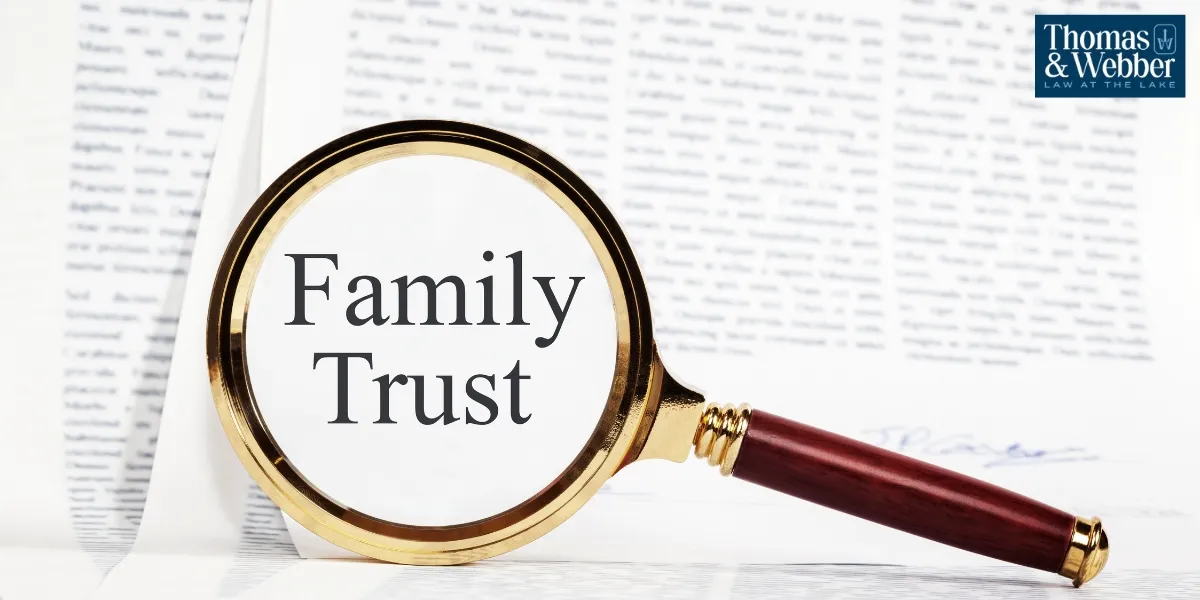Huntersville Trusts Lawyer

Huntersville Trusts Attorney
If you are a resident of Huntersville, you may be thinking about planning your future and what that looks like for you. It’s important to have a Huntersville trusts lawyer and law firm on your side when it comes to protecting your assets, planning your estate, or establishing a trust.
Thomas & Webber, a North Carolina-based firm, has experience and skill in trust law, estate planning, asset protection, and more to help protect your future and ensure your wishes are honored.
Why Choose Our Huntersville Trusts Lawyers?
At Thomas & Webber, we understand that navigating the complex world of trusts and estate planning can be an overwhelming task. Our experienced Huntersville trust lawyers bring compassion, clarity, and legal solutions tailored to your unique situations. We provide our clients with our experience with local courts and a deep understanding of North Carolina’s trust laws, helping to ensure your trust complies with state regulations.
We keep you informed every step of the way, answering your questions and clarifying any questions you may have. From revocable living trusts and irrevocable trusts to special needs trusts and charitable trusts, we handle it all.
What Is a Trust?
A trust is a legal arrangement where one party, the trustee, holds and manages assets for the benefit of another, the beneficiary.
Trusts are powerful tools for:
- Avoiding probate court delays and expenses
- Protecting assets from creditors or legal claims
- Managing property for minor children or disabled family members
- Reducing estate taxes
- Ensuring privacy for your estate plan
What Services Fall Under Trusts?
Trust lawyers cover a wide range of services in the legal world, including:
- Revocable Living Trusts: Protect your privacy and avoid probate while maintaining control of your assets during your lifetime.
- Irrevocable Trusts: Ideal for tax planning, Medicaid eligibility, or asset protection. Once established, these trusts cannot be changed, offering a powerful legal shield.
- Special Needs Trusts: Designed to protect the financial future of a loved one with disabilities without jeopardizing their eligibility for public assistance.
- Charitable Trusts: Leave a lasting legacy by supporting causes you care about while also receiving potential tax benefits.
- Testamentary Trusts: Created through your will and activated upon your death. Useful for managing assets left to minors or beneficiaries who need financial guidance.
- Trust Administration: Our firm also assists trustees with fulfilling their fiduciary duties, handling assets, distributions, taxes, and reporting.
Trusts in Huntersville
Huntersville is one of North Carolina’s fastest-growing towns, often attracting young families, professionals, and retirees alike. No matter if a person is planning for their children’s future, managing a blended family, or preparing for retirement, a Huntersville trust lawyer and firm may provide the tools needed to make confident and informed decisions.
Oftentimes, these lawyers assist:
- Parents seeking to protect their children’s inheritance
- Business owners planning succession
- Seniors concerned about long-term care and Medicaid
- Families navigating complex blended family dynamics
- Executors and trustees managing estate or trust administration
When focusing on the residents of Huntersville, recent statistics suggest many have substantial assets, highlighting the need for and importance of estate and trust planning. For example, as of 2023, the median property value in Huntersville was $439,300, reflecting an 11.7% increase from the previous year. Additionally, approximately 72.4% of households in Huntersville own their homes, which is higher than the national average of 65%. Given these significant investments, working with a residential closing lawyer or a real estate lawyer is crucial to ensure that property transactions are handled properly and that assets are protected as part of a comprehensive estate plan.
Creating a Trust Process in Huntersville
The process of creating a trust can seem overwhelming, but with the help of an experienced Huntersville trust lawyer, the process can be streamlined.
In general, the process looks like the following:
- Initial Consultation: You discuss your goals, family dynamics, assets, and more with the lawyer so they can get a better picture of what kind of trust you need. They may help you explore your options and answer any clarifying questions.
- Drafting the Trust: Once you choose what kind of trust is right for your unique situation, your attorney may prepare all legal documents based on your customized plan.
- Review & Signing: Your attorney may go over everything involving the trust in a clear way, answer questions, and make any necessary changes.
- Funding the Trust: All assets will need to be correctly titled and transferred, a task your lawyer may assist you with during this process.
- Ongoing Support: Experienced lawyers understand that life changes, sometimes at a constant rate. Whenever it is necessary, the attorney may help update your plan.
FAQs
What Is the Downfall of Having a Trust?
One of the potential downfalls of having a trust is the upfront cost and effort required to set it up properly. It also requires ongoing management and may not offer complete protection from creditors or taxes. However, despite these drawbacks, trusts remain a powerful tool for estate planning and asset control.
What Accounts Should Not Be in a Trust?
Retirement accounts like IRAs and 401(k)s should not be placed directly into a trust, as it may trigger taxes. Health savings accounts and motor vehicles are also typically excluded. Instead, it is advised to name the trust as a beneficiary when appropriate. Always consult an estate planning attorney to ensure proper asset alignment with your trust.
Does North Carolina Tax Trusts?
Yes, North Carolina taxes trusts if the trust is considered a resident trust or has income derived from North Carolina sources. Resident trusts are typically those established by a North Carolina resident or administered in the state. These trusts must file a state income tax return and may owe taxes.
How Much Does It Cost to Put Your House in a Trust?
Placing your house in a trust typically involves legal fees for drafting the trust document and transferring the deed. Trust costs vary depending on complexity and attorney rates. While it’s an investment, it can save your beneficiaries time and money later by avoiding probate and ensuring a smoother transition of property ownership after death.
Contact Us Today
If you are interested in creating a trust or just interested in learning more about the process and services we offer, it is time for you to get in contact with us. The Huntersville trust lawyers at Thomas & Webber are extremely experienced in this type of law. Allows us the opportunity to help you begin planning your future. Give us a call today.



